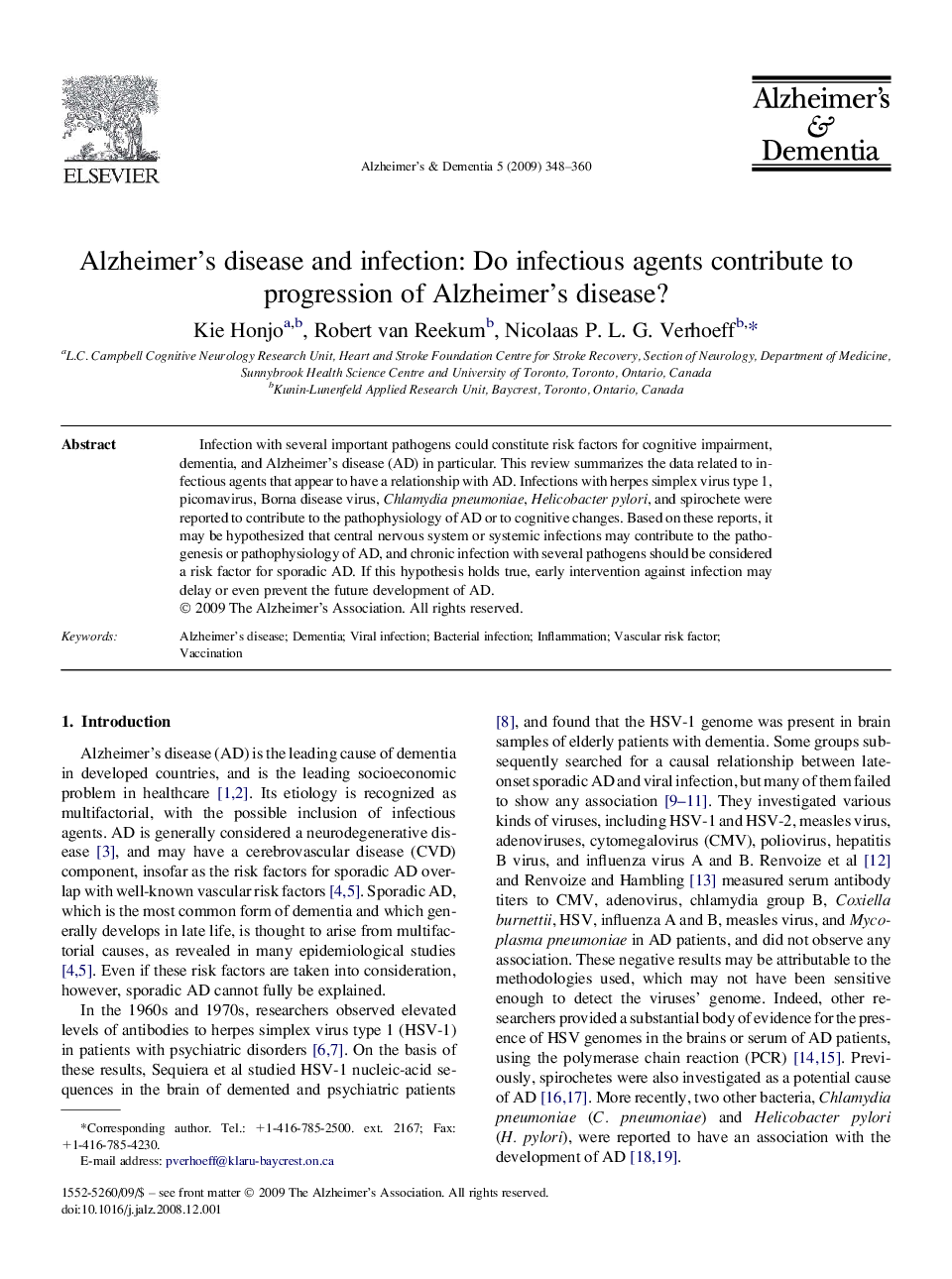| Article ID | Journal | Published Year | Pages | File Type |
|---|---|---|---|---|
| 5625100 | Alzheimer's & Dementia | 2009 | 13 Pages |
Infection with several important pathogens could constitute risk factors for cognitive impairment, dementia, and Alzheimer's disease (AD) in particular. This review summarizes the data related to infectious agents that appear to have a relationship with AD. Infections with herpes simplex virus type 1, picornavirus, Borna disease virus, Chlamydia pneumoniae, Helicobacter pylori, and spirochete were reported to contribute to the pathophysiology of AD or to cognitive changes. Based on these reports, it may be hypothesized that central nervous system or systemic infections may contribute to the pathogenesis or pathophysiology of AD, and chronic infection with several pathogens should be considered a risk factor for sporadic AD. If this hypothesis holds true, early intervention against infection may delay or even prevent the future development of AD.
